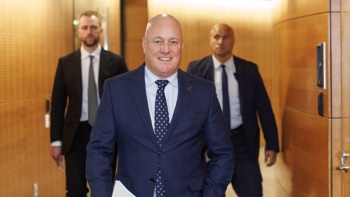
An Auckland educational company preyed on parents' "hopes and fears" about their children's future to sell expensive tuition products, a court has heard.
The Commerce Commission charged the Auckland Academy of Learning (AAL) in June last year over the way it sold education software packages, claiming that staff misrepresented the product and breached consumer credit and direct selling laws.
Today, a sentencing hearing was heard by Judge Noel Sainsbury in the Auckland District Court after the company earlier pleaded guilty.
The Commerce Commission had received more than 180 complaints, largely after a series of stories aired on the now-defunct TV3 programme, Campbell Live, between 2014 and 2015 over the way AAL sold computer-aided mathematic instruction (Cami) software.
The software's cost ranged from $6000 to $11,000, while the price was also misrepresented in some instances.
The Commerce Commission said the Newmarket-based company would make a cold call before being invited into people's homes.
Once there, sales representatives would offer school-aged children a complimentary tutoring session, but it was a disguise for a sales pitch to sell them Cami.
AAL's sales pitches would "prey on parents' hopes for their child's education for their futures" as well as playing on the fear that the public school system was failing their children, counsel for the Commerce Commission Alysha McClintock said.
The company would attempt to sell its "expensive product" to parents with "shock and scare tactics" and commit them to a long-standing contract, she said.
Sales scripts were also worded so that the assessment would demonstrate what the child was learning at school and if there were any "missing concepts", McClintock added.
Part of the sales script was to categorise a child as being either average, struggling, or advanced. If advanced the sales pitch would be that the software would keep them at a high level, the court heard.
The student's assessment was also explained to have been from the previous academic year, with parents told any more than one or two mistakes showed "gaps in knowledge", McClintock said.
But the court heard the test was often harder and any incorrect answers were circled in red before the sales person would ask the prefaced question: "Is this the sort of result you expected?"
Victims of the AAL scheme said the rort was "gut-wrenching" and left them "dumbfounded".
"You don't get the product but you pay everything for it," said one in a victim impact statement.
McClintock said it was not describing Cami as a "worthless product" but that it shouldn't have been tied to the New Zealand educational curriculum.
The court heard that the sales people had no teaching qualifications, except one who claimed to be a teacher.
The Commerce Commission said the company had also failed to tell parents they had a right to cancel the uninvited direct sales agreement before it was entered into, that AAL failed to disclose key information about credit provided for the software, and that the price paid was misrepresented in some cases.
Academy of Learning is owned by its sole director, Gordon McPherson, and holds a distribution licence for the Cami software in New Zealand.
McPherson was in court for the hearing.
His and AAL's counsel Fiona McGeorge argued for a sentencing discount due to negative publicity causing a "catastrophic" sales dip for the company.
However, McClintock said any bad press was simply a consequence of the offending.
McGeorge also said the company accepts its sales representatives were not giving the correct oral advice to parents.
But she argued that "written advice was stronger than oral" and the customers had signed a written contract.
She also said the customers had the opportunity to pull out of the deal if they couldn't afford it or got cold feet.
Judge Sainsbury, however, said the reality was many people don't read contracts when making an emotional decision - increasing the importance of oral advice.
"And it doesn't get much more emotional when you push the button on a child's education ... it's such a charged area," he told McGeorge.
"That's just wrong."
The judge said the parents were incredibly vulnerable, particularly if they had limited education themselves and wished nothing but the best for their children.
Judge Sainsbury reserved his decision until later this month.
McGeorge said if the court imposed a fine above a certain level then AAL will have to liquidate.
Two of the Commission's 11 charges related to AAL's alleged failure to tell consumers, before the agreements were entered into, that they had a right to cancel the uninvited direct sales agreement.
Other allegations by the Commission include that AAL failed to disclose key information about the credit provided for the Cami software programme.
There were initially 37 charges, the court heard.
Take your Radio, Podcasts and Music with you









